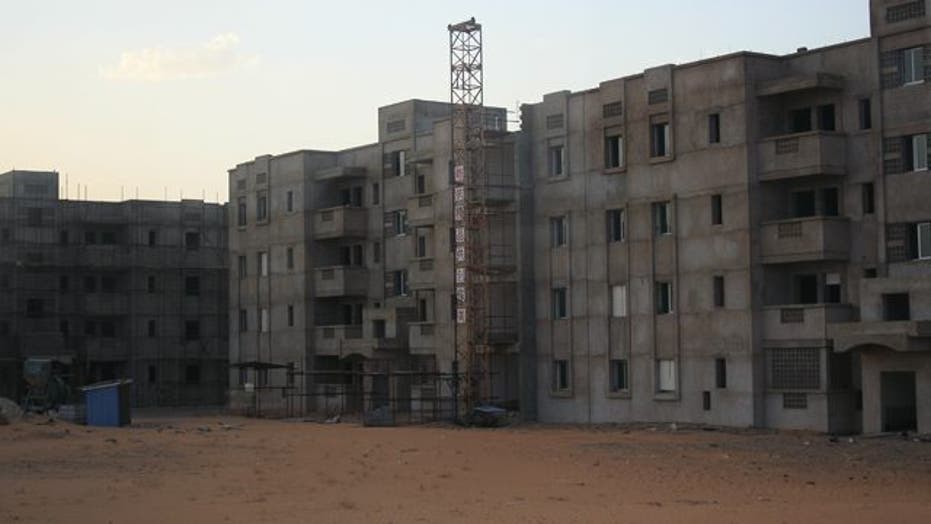TRIPOLI, Libya – As Libyan rebels in the East continue their fight against embattled leader Muammar al-Qaddafi, many residents flee to the country's Western border, away from the violence.
A man, who doesn’t want to give his name and speaks in broken English, says he worked as a surgeon in Benghazi before fleeing Libya’s troubled east with his family two months ago.
He now lives in a low set accommodation block on Tripoli’s southern outskirts that once housed Chinese workers.
“At least we have security here," he says.
The Beijing Construction and Engineering Group were putting up 15,000 new units here, but work stopped when the foreign laborers fled the country back in March.
Now, their former billets house 73 Libyan families. The 480 internally displaced Libyans mark time in this compound watching television in stuffy common rooms while they wait to break their Ramadan fast.
There are no schools, no shops nearby and very few cars with which to leave the isolated building site. The grounds have yet to be landscaped and the development can only be reached via a winding dirt road. Despite these basic conditions, the man is glad to be here.
“They wanted to kill blacks there,” he says. “I’d be killed if I stayed.”
“They catch me with a gun in front of my wife and kids. They arrested me, tied me up and covered my eyes and took me to their camp for questioning about Muammar Qaddafi.”
It was only after local hospital officials confirmed his identity that he was freed. He left the city, his home for the past 21 years, and headed for the Egyptian border with his wife, two small boys and just two bags.
From Egypt, the family was taken to Tunisia and then to Tripoli and finally to this remote refugee center.
Food is brought in daily, consisting of fruit juice and rudimentary meals in aluminum wrapping.
As the family’s meal heats on an electric cooker in the small room where they also sleep, the 40-year-old doctor defends the Libyan leader’s violent crackdown on the uprising in the country’s East.
“What happened there was not a revolution. Imagine if some people in London go to a police station and stole guns and then came to your street and started shooting. What would your government do? That's what happened in Benghazi.”
“Muammar Qaddafi represents to the Libyan people what George Washington is to the U.S. Bloodshed will open if Colonel Qaddafi leaves Libya. You couldn’t imagine what would happen here.”
For now, the housing development, that was to be called New Tripoli, will be home for the refugees. Five babies have already been born here, apparently all boys and all called Saif al-Arab after Qaddafi’s son who was reportedly killed in a NATO bombing raid early on in the war.
“There is nothing to do here,” says the displaced doctor.
“Everything for us has stopped. We just stay here and listen to NATO’s music.”

